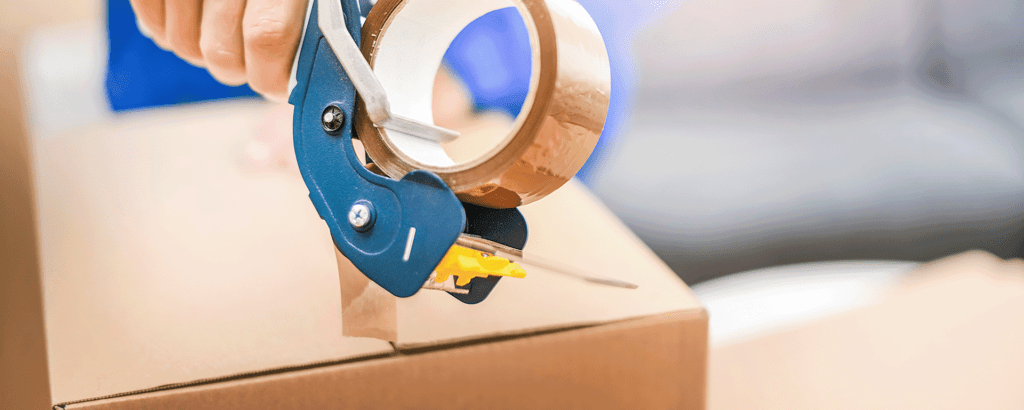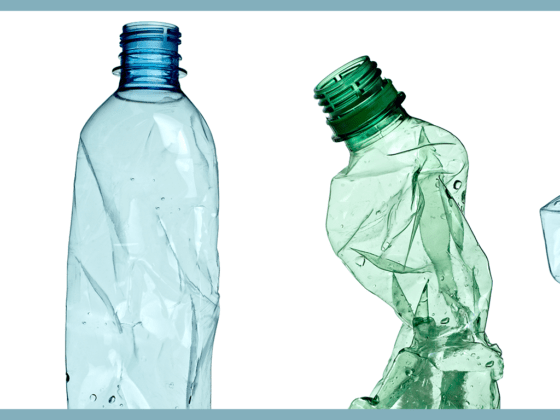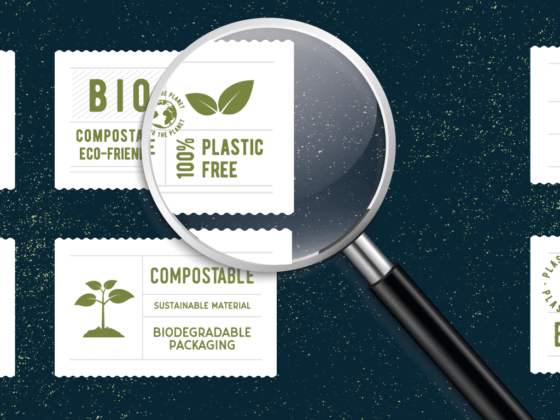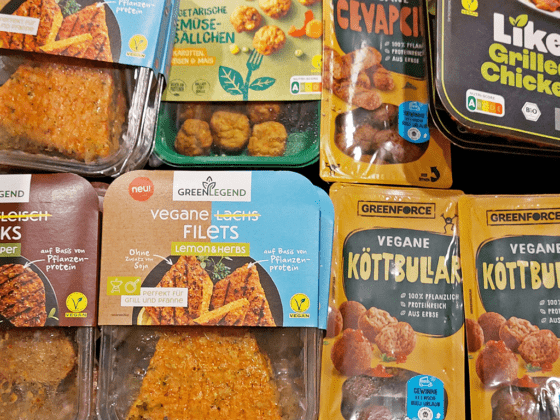Packaging check at Amazon, Otto, Zalando & Co.
Hundreds of thousands of packages crisscross the country every day: we have shoes and books, vegetables or a new smartphone cable delivered directly to our homes. But can we really store with a clear conscience at the click of a mouse – or are we sinking into a sea of packaging waste? We at flustix took a look at how sustainably and innovatively the largest mail order companies in Germany pack and ship their goods.
Amazon ships two million packages a day
By far the largest retailer in Germany is Amazon. Compared to 2019, i.e. since the Corona lockdowns, annual sales have increased by 68 percent. Germans shopped for more than 32.6 billion euros on the Internet platform in 2021. Almost unimaginable: that’s goods worth 90 million euros day after day – or calculated in packages: two million pieces daily. Measures were taken by the mail order giant to reduce the mountain of packaging waste:
Less weight. The goods are usually packed in cardboard boxes or envelopes. The mail-order company is focusing on material savings. Since 2015, the weight of shipping packaging per shipment is said to have been reduced by more than 36 percent. According to Amazon, this means that more than one million tons of packaging material have been saved – the equivalent of around two billion shipping cartons.
Frustration-free packaging. Companies selling goods via Amazon must join the Frustration-Free Packaging program. The goal: goods should not receive any additional outer packaging, and the actual packaging must be recyclable. To do this, retailers need internationally valid certifications. In the EU, this is governed by Directive 94/62/EC of the European Parliament and Council of 20 December 1994 on packaging and packaging waste. The independent certifications of flustix are recognized here.
Customized design. Oversized packaging, which is intended to encourage purchases in retail stores, is not necessary for mail orders. That’s why Amazon relies on smaller packaging and is convincing more and more sellers to ship items in the original box, without a second sleeve. For the companies, the practiced environmental protection pays off: They save additional commissions that would otherwise be due to Amazon, as well as costs for
materials, effort, and energy for packaging. This is a win-win situation for everyone involved and for the environment.
Delivery. Last year, around 40 million packages were delivered by suppliers who are increasingly using electric vehicles or cargo bikes. Amazon is converting to an electric fleet in the USA and ordered 100,000 electric vans from an e-mobility start-up.
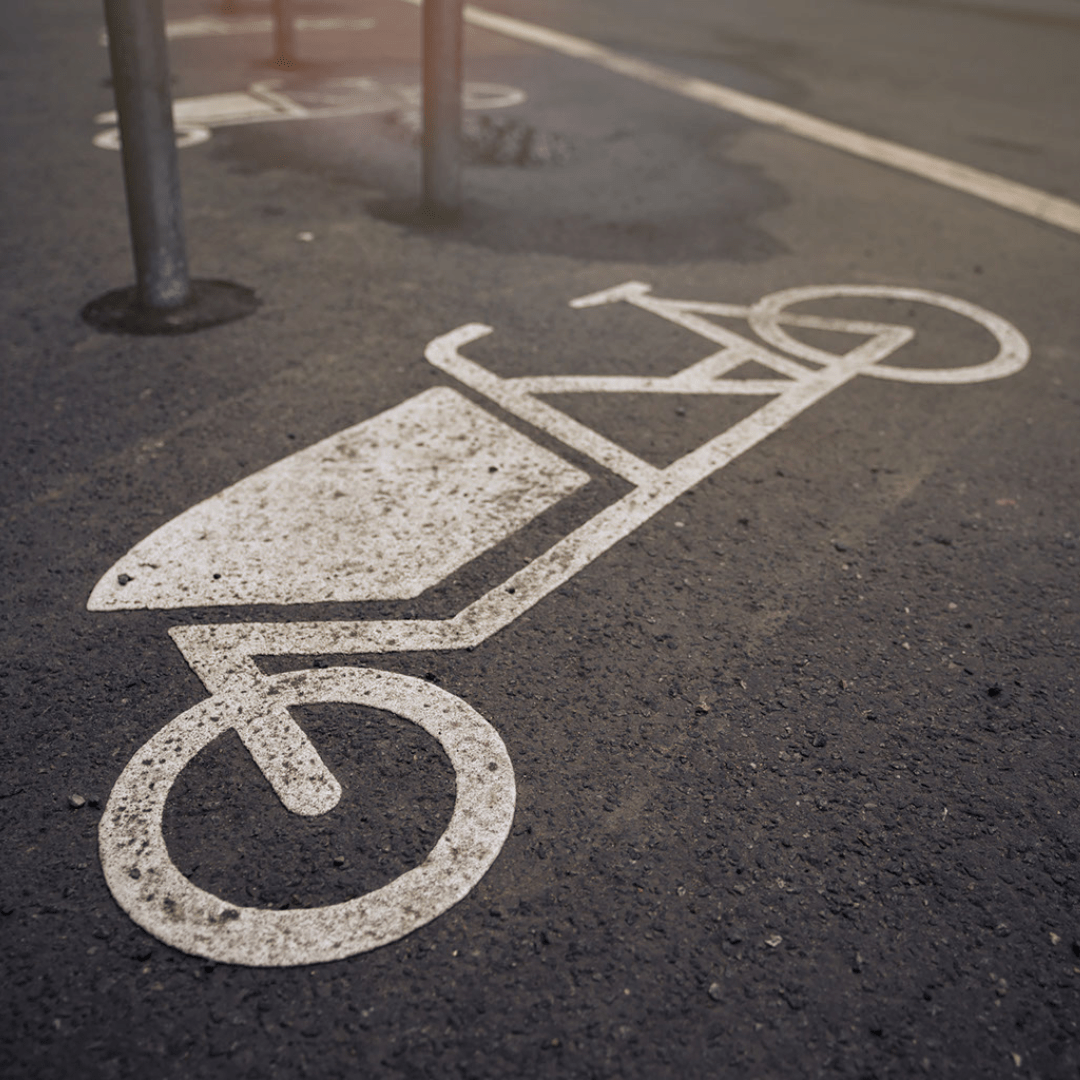
But research incriminates Amazon: The company destroys new goods
What makes all these efforts and communicated sustainability intentions absurd are recent investigations by the ZDF magazine “frontal”. According to this, the Group continues to destroy returns, including new goods. Chain saws, car rims, pots, laptops, headphones, solar lamps, toner cartridges and keyboards are cited as examples. Also, originally packaged baby blankets. The recycling obligation introduced by the German government in 2020 has apparently not changed this. Suspicion: Compliance with the duty of care is not monitored at all.
OTTO tests shipping bags made from grass and plastic waste
Versand-Urgestein OTTO (Gründung: 1949) ist der zweitgrößte Onlinehändler in Deutschland. Er testet gerade neue Verpackungslösungen.
OTTO (founded in 1949) is the second largest online retailer in Germany. It is currently testing new packaging solutions.
Grass bags. In the future, the online retailer plans to use compostable bags that, according to the group, will completely decompose within two weeks. They are made of grass paper and a bio-based plastic substitute made from plant waste. The company is developing the pro-duct innovation with Hamburg-based start-up traceless and is shipping the first 5,000 bags to customers in a pilot project. The innovative packaging is mainly used for textiles and small items such as vacuum cleaner bags or razor blades.
Wild plastic. This idea has already been introduced. OTTO uses shipping bags made from recycled plastic. The special thing about this: according to the company, the plastic is collected from the wild in countries such as Haiti, Nigeria or India – under social wage conditions. The waste is shipped to Portugal, where it is processed into granules that are later used to produce new bags. Despite the transport, 70 percent CO2 is saved compared to a new bag – in addition, tons of waste disappear from nature. Sounds good, but it is virtually impossible to verify and does not work for all suppliers. We report here on a particularly brazen example of a bag manufacturer that advertised with such themes.
Bags instead of boxes. According to OTTO, the normal shipping bags are made of 80 percent recycled plastic. In addition, the bags have the “Blue Angel” certificate because they can be stacked in a more space-saving manner than cardboard boxes and can thus be transported in a more environmentally friendly manner. However, this does not guarantee the use of recycled materials and the authenticity of the proportion of recycled materials in the bags – in the future, independent verification will also be required for this. You can read more about why here.
Zalando folds the clothes as compactly as possible
The shoe and apparel specialist banks on recycled materials and is exploring reusable shipping bags in a pilot project.
Recycled materials. Last year, Zalando used 68,000 tons of packaging material: 89 percent of it came from recycled materials, and the retailer declares almost all of it (99 percent) as recyclable. The cartons are made of 100 percent recycled cardboard, and the brand imprint is made of water-based ink. The small plastic bags that protect the clothes are made of recycled plastic, according to the online retailer. However, Zalando does not provide independent proof for any of its ambitious claims.
No adhesive tape. The shipping cartons have adhesive edges. That’s why four out of five cartons don’t need extra tape.
New paper bags. Zalando shipping bags have so far consisted of 80 percent recycled plastic – according to the company’s own information and thus unaudited. The retailer is currently switching to bags made of FSC-certified and recyclable paper. Cosmetic products now also come in paper “beauty bags.”
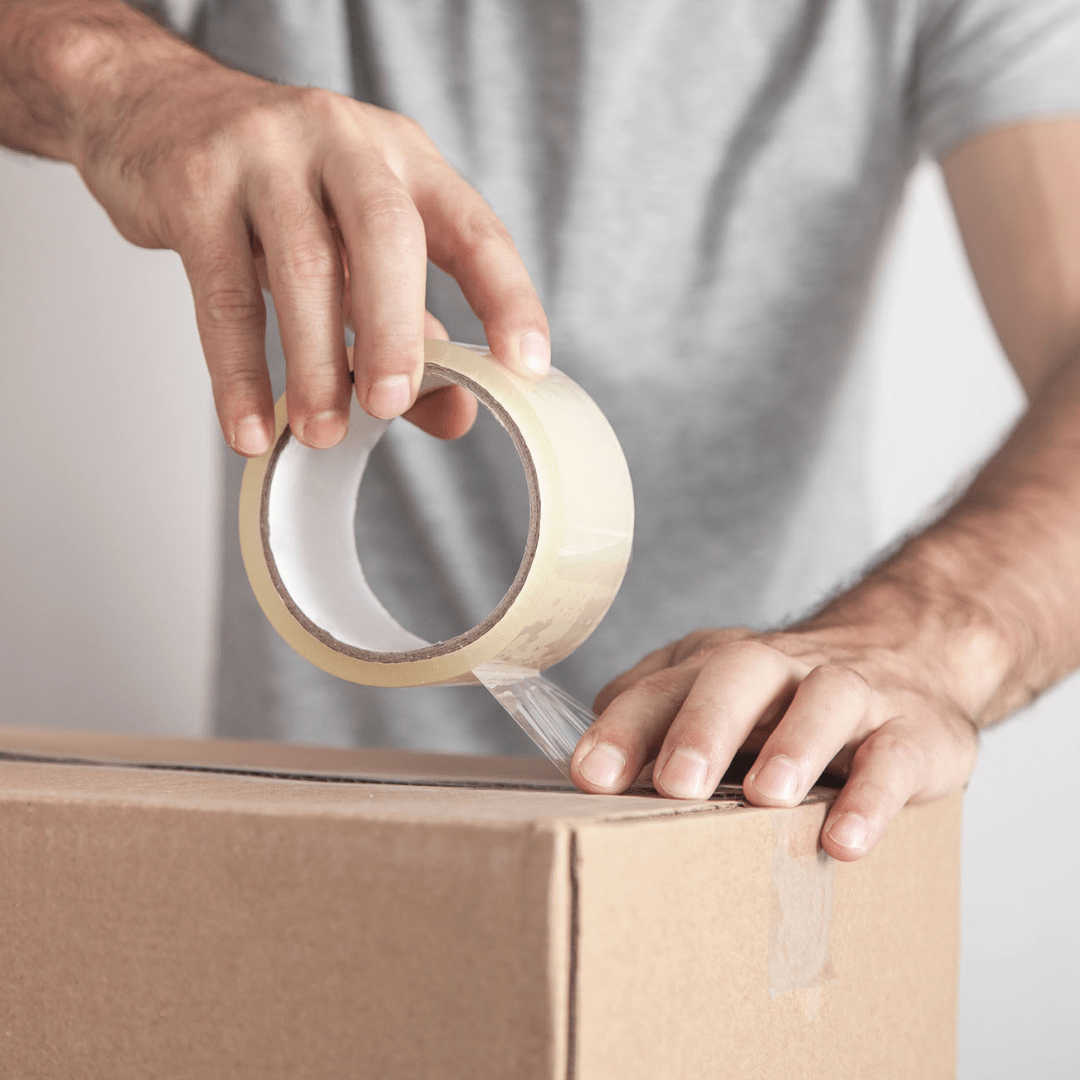
Previously, they were packed in bubble wrap plus cardboard.
Folding art. Clothing items are folded as small as possible so that shipping boxes can also be smaller.
Reusable packaging. This idea could revolutionize the mail-order business. For three years, Zalando has been testing reusable shipping packaging with 20,000 customers in Scandinavia with the pilot partner RePack. The idea: reusable shipping bags that can also be used for returns. The biggest challenge here is organizing the return shipment of the empty bags. RePack advertises the use of recycled materials in a big way, but in the future this will also require independent certification on EU grounds. Another start-up is also just entering the market with reusable shipping bags and has developed a complete deposit system. You can read the story here.
Mediamarkt and Saturn package light bulbs in recycled paper
Electronics retailers implement innovative ideas in product packaging.
Private labels. Subsidiary Imtron, manufacturer of private labels, adopted its own packaging guidelines back in 2013. The five goals: Remove, Reduce, Reuse, Renew and Recycle. This will reduce the overall volume of packaging. The company is also focusing on new materials and recycling cycles. The company does not provide any information on independent certifications, but will also require independent proof of this from 2023 if it continues to advertise. The flustix seals are recognized as official proof.
Paper instead of blister. LED lamps used to be sold in plastic blister packs, but now they are packaged in recycled paper. Here, too, you have to rely on the company’s information regarding the recycled content; independent certification for this is not communicated.
Reusable ink. Every year, 100 million printer cartridges are sold in Germany – most of them end up in household waste, and some have to be disposed of as hazardous waste. At MediaMarkt and Saturn, customers can now order remanufactured ISY cartridges for various printer models. The cartridges are collected in the stores after use and refilled again and again.
Lidl ships items without delivery bill and instructions
Lidl is not only a giant in stationary retail: The grocer is the fifth largest mail-order company in Germany – with more sales than IKEA or H&M. Many customers order electronic goods. Lidl is not only a market leader in the mail order. The Schwarz Group is also a pioneer in the field of environmental services: PreZero, one of the most important European environmental service providers, is part of the Group (30,000 employees). Soccer fans know Pre-Zero from the Bundesliga: The Group is the name sponsor of the TSG Hoffenheim stadium.
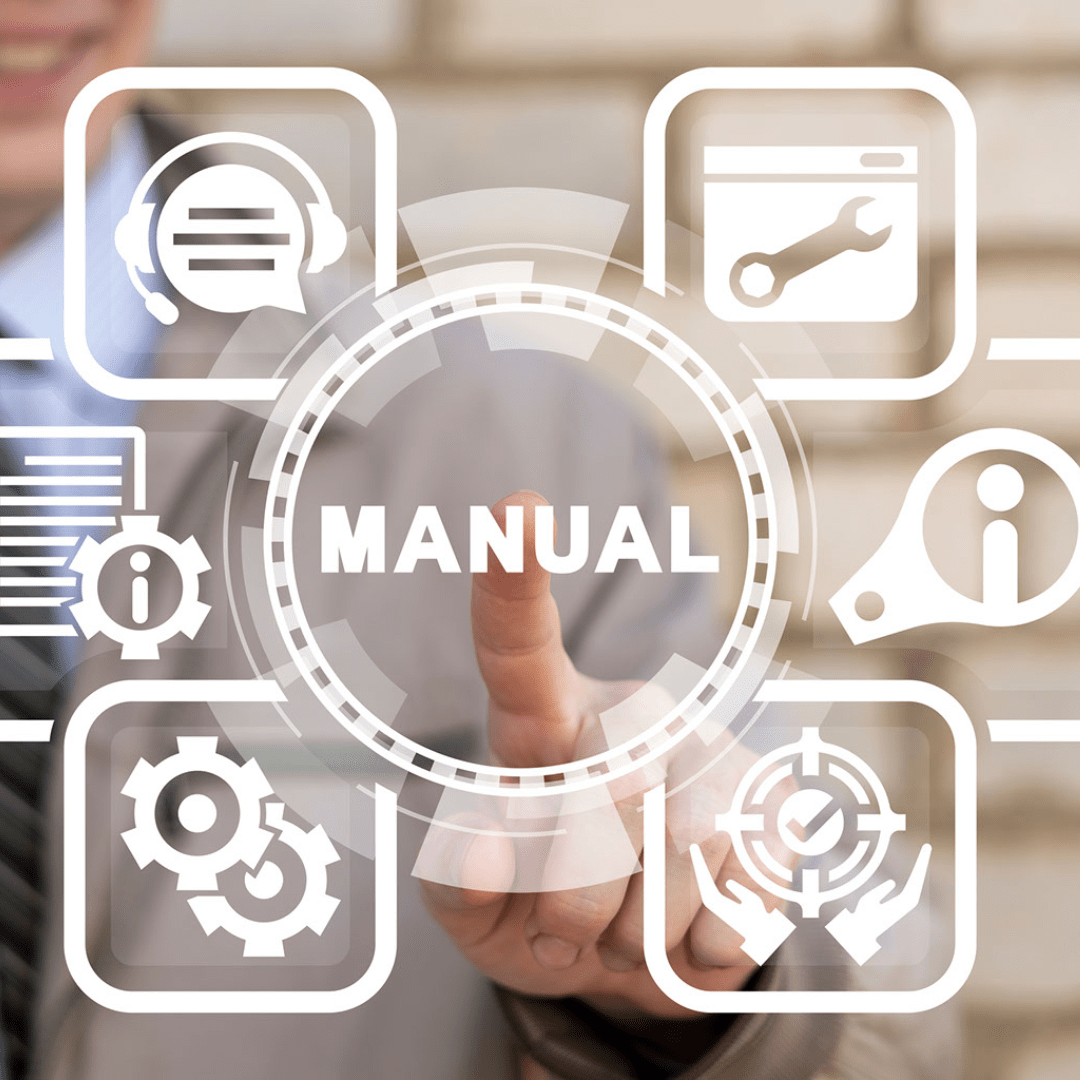
Without documents. Lidl has recently stopped enclosing delivery bills and return documents in its parcels – for environmental reasons. Customers receive the documents digitally.
Digital operating instructions. Packages no longer contain thick instruction booklets. Lidl now only includes brief instructions, and customers can obtain detailed information in the digital manual.
Store trash. Lidl uses an in-house recycling system. Paper waste from the stores and warehouses goes to the company’s cardboard supplier. This is then used to create in-house recycled cardboard boxes for online shipping. All cardboard packaging is FSC-certified and consists of at least 70 percent recycled paper. This is a positive example of how an in-house recycling solution can pay off. The Schwarz Group has much more potential with its subsidiary PreZero.
Apple abolishes a cult to save plastic
The tech company has declared war on plastic packaging.
Less plastic. Since 2015, Apple has reduced the plastic content of its packaging by 75 percent. Only four percent of its packaging is currently made of plastic. By 2025, this packaging is also to be replaced by alternatives. In the case of the iPhone 13, a new packaging design has eliminated the need for plastic outer packaging – which the company says will save 600 tons of plastic.
No display foil. Pulling off the display foil used to be the last act of unpacking a cell phone – with cult character. Apple has now dispensed with this foil and uses a paper alternative for protection. Whether this paper alternative is really plastic-free has not yet been proven either independently or by Apple.
Brown instead of white. In a test phase, Apple began returning repaired iPhones in brown cardboard boxes instead of the white boxes. This packaging is made of unbleached paper and is declared by the company to be plastic-free. Here, too, the credibility of certificates – e.g. the recognized flustix seal – helps in customer communication.
IKEA to do away with plastic completely for packaging in future
The furniture retailer wants to stop plastic packaging completely.
Zero plastic mission. Screws in plastic bags, power cables in plastic tubes – these are to be things of the past at IKEA from 2028. New products are to be packaged completely plastic-free from 2025, and existing packaging is to be changed over by 2028. IKEA already packs its furniture items in the typical flat cardboard boxes, and says it uses only ten percent plastic for its packaging. In total, IKEA produces 920,000 tons of packaging annually.
Read here what a German start-up is doing with cartons that can no longer be used because they are dirty or the print is outdated.
 English
English Deutsch
Deutsch

